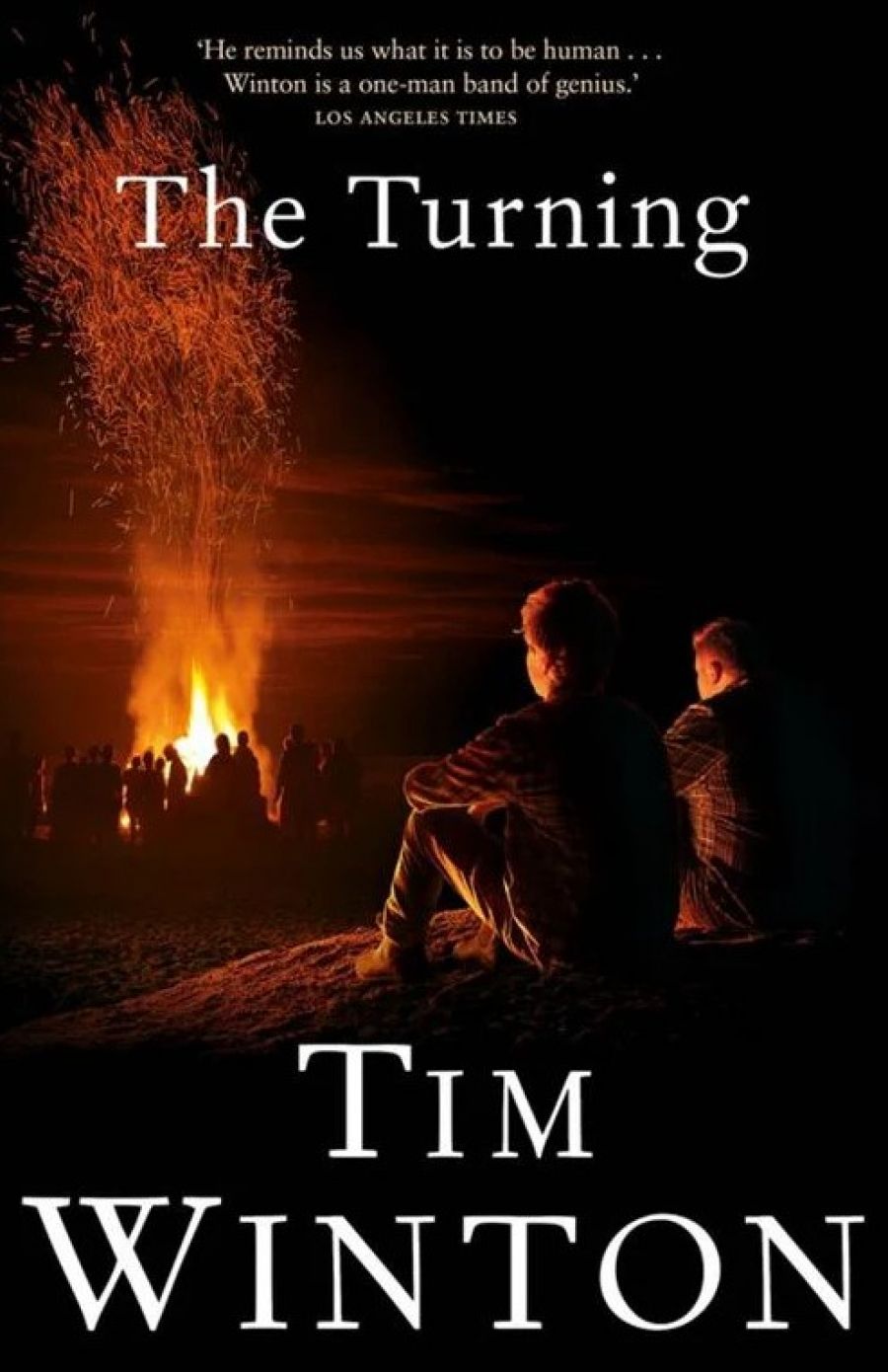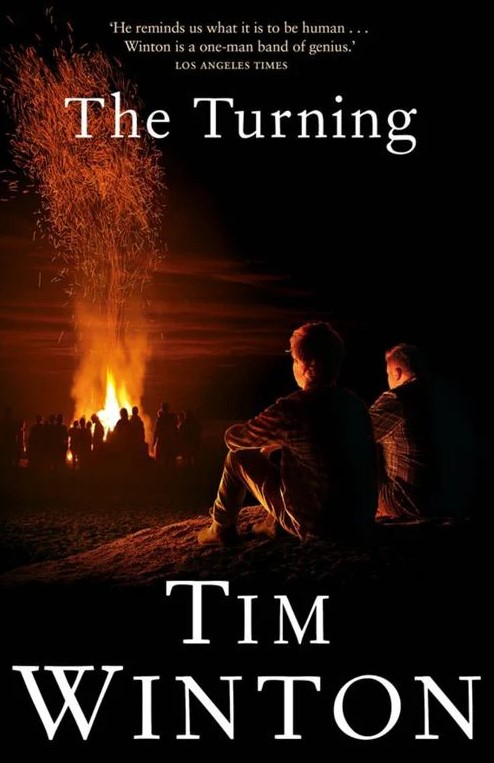
- Free Article: No
- Contents Category: Short Stories
- Review Article: Yes
- Article Title: A Job Lot
- Online Only: No
- Custom Highlight Text:
Any novelist prepared to name one of his characters ‘Fish Lamb’ and to have that character come back from the dead is obviously interested in Christianity on some level. It is also true that several of the big themes that run through Tim Winton ‘s fiction – guilt atonement, forgiveness – have a religious flavour. Nevertheless, Winton’s symbolism tends to have an open-ended quality. When his characters experience moments of spiritual awareness, moments that Winton has said are meant to be taken literally, these experiences are often depicted as a nonspecific form of mysticism or pantheism.
- Book 1 Title: The Turning
- Book 1 Biblio: Picador, $46 hb, 315 pp
- Book 1 Cover Small (400 x 600):

- Book 1 Cover (800 x 1200):

The story perhaps wants to express the idea that there is hope in the most sordid of circumstances, but the transcendence it implies just isn’t there; the whole sorry episode rings false, leaving Rae’s moment of triumph exposed as an appalling lie. ‘The Turning’ is, in short, a nasty piece of work whose unredeemed ugliness is recommended only for those seeking confirmation that Christianity is sexist and repulsively masochistic.
That this unpleasant lapse of judgment is positioned as the central story casts a strange pall across The Turning, emphasising its depiction of suffering as a pervasive part of the human condition. Vic Lang, who emerges from the series of overlapping tales as the book’s principal figure, compare himself to Job, which also hints at an Old Testament severity that is never far from the surface. In The Turning moments of contentment are few: man is born to trouble as the spark fly upward and wounds are multiplied without cause. Life itself, with its unexpected turns and inevitable hardships, is an ongoing struggle.
As the stories move between the confused innocence of youth and a darker adult world in which life’s disappointments have made themselves felt, Vic Lang, like most of the book’s characters, finds himself burdened by his past. Both individually and collectively the stories try to grope their way toward an acceptance, or at least a deeper understanding of this burden.
Taken as a whole, the collection has a ragged, dissatisfying feel. With few exceptions, the stories in The Turning are examples of Winton’s fiction at its most dourly literal. Irony plays almost no role. They are written from a range of perspectives, but all essentially affirm the same vision. They are dogged in their sincerity, largely uninterested in exploring the conflicts and contested truths that might arise from these different points of view.
The characters struggle with their emotions, they don’t know what they want out of life or what it all means they wrestle with their past, but always in a slightly myopic fashion, and eventually one begins to distrust the way they all seem to exhibit the same incapacity for self-awareness beyond a certain point. Vic Lang has solipsistic tendencies for a reason, but there is a more pervasive, unacknowledged solipsism hanging over these stories in the way the fiction is stripped back to a kind of unreflective monochromatic realism. The only way, one senses, for Winton’s characters to escape the fate of being sincere, earthy and troubled is to move to the city, where there is a fair chance they will be miraculously transformed into phoneys.
Though at times Winton’s straight-ahead, colloquial style can give the impression of being ripe for parody, it has its strengths. In the more successful stories, such as ‘Small Mercies’ and ‘Commission’, it is able to convey an authentic, understated sense of a damaged and aching masculinity. There is also a nicely acidic take on the unarticulated class assumptions of Australian society in ‘On Her Knees’. But there is a sense of mediocrity about many of the stories in The Turning that its subtly interwoven structure is unable to overcome. They are generally competent enough, of course, but they lack the glint of perfection that gives great short stories their special intensity.
It is significant that the most interesting piece stands apart from the book’s overall structure. ‘Aquifer’ is written in a rapid-fire, associative style in which the narrator’s memories of his suburban childhood, triggered by a late-night news item, flood back to him in an unchronological jumble. There is an almost modernist feel to the way it allows consciousness to render time fluid. It is one of the only examples in The Turning of Winton moving away from his familiar method to experiment with technique (there is a faint trace of this style in ‘Long, Clear View’), and its comparatively rich texture, as it explores the free play of memory, highlights how plodding and crabby are many of the other stories in the collection.
For a book whose subject is the past, one that claims that ‘[t]hings are never over’, it is a part of its frustrating nature that, despite its multiple perspectives, it never quite comes to grips with the subjective quality of memory and experience. As a result, The Turning tends to give a sense of Winton’s limitations rather than celebrating his talents.


Comments powered by CComment